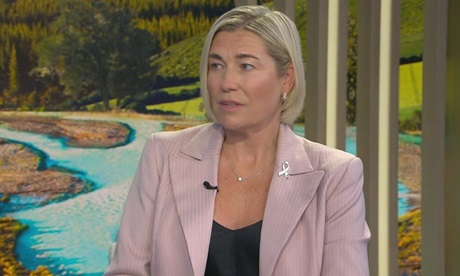Abuse-in-care survivors are looking forward to next month’s apology from government leaders for the suffering they have endured.
The apology is one thing. But some advocates say there are survivors who are expecting unrealistic payouts.
Apology
Erica Stanford, the minister leading the government response to the inquiry, has announced a Parliamentary apology on November 12 for the State’s failures across successive governments.
Some government agency chief executives are expected to apologise as well on that day.
Compensation
“Everybody’s just on tenterhooks” said survivor advocate Ruth Money (pictured).
Some lawyers had been hyping up expectations of big payouts, she said. Some survivor circles spoke of individual payouts as high as $3.6 million.
“You literally spend hundreds of hours explaining to survivors, in very long, distressing phone calls, that our system is very different and there’s no way a survivor in New Zealand is going to get anywhere near that amount of money.”
Many survivors are hypervigilant and still mentally fragile, Money said.
“It’s easier for us to see, from the outside looking in. It’s not our lived experience. We don’t have the PTSD triggers.”
Royal Commission findings
The Abuse in Care inquiry found evidence of abuse and failures in many places entrusted to care for children and young people.
Survivor Mike Ledingham said he did not see the point of the apology without meaningful change.
He doesn’t think leaders of many religious or state institutions can be trusted to address abuse allegations fairly even today.
He’s pleased though that the Commission helped expose wrongdoing and New Zealanders now know how rampant it had been.
He says that was a big change from a generation ago, or even from five years ago. When he and his brother first spoke publicly about their abuse in 2002, they were threatened with death.
Verbal abuse and threats continued until the Royal Commission began in 2018. Now there are virtually none.
Failure to deliver
Murray Heasley of the Network for Survivors of Abuse in Faith-Based Institutions attended a number of early Commission hearings.
“The Royal Commission, which promised so much and which we encouraged people to engage with … has failed to deliver” he said.
He is concerned about the effect the Commission has had on survivors.
In his view it became increasingly unsafe, awash with bureaucracy and identity politics.
“The majority of our survivors feel they’ve been ghosted” Heasley told the Herald.
“They’re extremely anxious, they feel betrayed.”
Most have low expectations, though some are still hopeful “that historic survivors will get some redress and the Government will acknowledge that it’s urgent” he said.
Source
